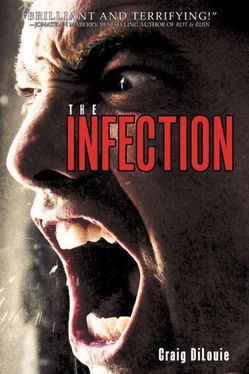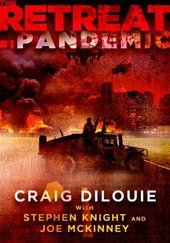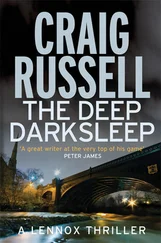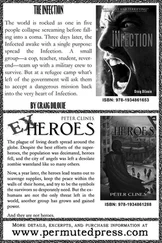Rita coughed. “I got no choice about it.”
“And do you feel you are right with Jesus?”
“I don’t believe in Jesus, Reverend,” said Rita.
Paul stared at her, stunned. “But of course you do.”
“No, I don’t.”
“You’ve been worshipping at my church for years.”
“That’s right. But I never really believed any of it.”
“Oh,” he said.
“No offense, Reverend.”
“You don’t believe you’re going anywhere special, and yet you’re not afraid?”
“Why should I be? Like I said, I got no choice.”
Paul regarded her for several moments, unsure of what to say. Based on his experience ministering to the dying as well as the living, he had always agreed with the sentiment that there are no atheists in foxholes. Rita Greene was proving a rare exception.
“Reverend,” she said. “Read me that passage from Ecclesiastes. The one about the seasons.”
“Um,” Paul said. “Of course.” He cleared his throat and recited from memory, “‘For everything there is a season, a time for every activity under heaven.’”
“Mmmm,” Rita said, smiling and closing her eyes.
“‘A time to be born and a time to die. A time to plant and a time to harvest. A time to kill and a time to heal. A time to tear down and a time to build up. A time to grieve and a time to dance…’”
He stopped. Rita had fallen asleep.
Her son Jim met him in the kitchen. He was a large man who worked in construction. He told Paul that he was taking it hard. They sat at the kitchen table to talk.
“Chondrosarcoma,” Jim said with revulsion. “I never heard that word before a week ago. And here it comes, the thing that’s going to kill my mom. Goddamn cancer.”
Paul nodded.
“Hey, Reverend,” Jim added, “what do you say to people when you do grief counseling? What technique works the best?”
“Well, the hardest part is giving our loved ones permission to die,” Paul told him. “Some people go on trying to interact with their loved one even after they’re gone. They’ll go on talking to them because they don’t know how to move on.”
“So what do you say to these people to help them?”
Paul took out a pen, pulled a napkin from a neat stack on the other end of the table, and drew a thick black line on it.
“It’s a line,” Jim said.
“I tell people that their past is on one side of the line and their future is on the other,” Paul explained. “I tell them they have to acknowledge that they are crossing this line and that things have changed. They’ve got to let go and begin to accept the change so they can move into the future.”
Jim grunted, letting the visual sink in.
Paul looked at the line and imagined that it did not separate the past from the future, but life from death. On the left, a tiny life of joy, hardship, searching and wandering. On the right, either eternal joy in union with the Creator, or eternal oblivion—an endless, mindless, terrifying darkness—each of us alone, each of us forgotten, each of us nothing.
♦
The hospital appears to grow larger and more complex as the survivors explore its depths. They mark their progress with a can of fluorescent paint. All of the phones are off the hook. Ethan picks one up and places it against his ear just to rediscover the old, familiar act. He dials his home number and listens. The phone does not ring. Nobody answers. He places the phone carefully back on the receiver. Then he hurries to catch up with the other survivors, who have stopped in front of a door.
The sour, rancid smell of the dead is strong here. Ethan places a rag soaked in cologne over his mouth and nose and fights the urge to gag.
“We have to check every room,” Anne says.
The others nod, reluctantly, and step inside.
Ethan instantly regrets it. He slowly explores the walls with his flashlight. They are covered with crayon drawings on construction paper, crude depictions of homes and mommies and daddies and family pets and suns with big yellow rays coming out of them. Sprayed with dried blood.
“Oh Jesus,” he says. “Oh, Jesus.”
“This was the daycare,” Wendy whispers.
Like a trapeze artist afraid of vertigo and falling a long way, Ethan tells himself not to look down. For some reason, the Infected do not want prepubescent children. They do not try to infect them. It may be that the virus does not see them as viable hosts. Or perhaps the virus places a higher value on them as nutrition, for the Infected murder children and feed on their remains.
He knows the floor is littered with rotting meat and bones. Little skulls.
Ethan suddenly cannot breathe.
Anne shines her flashlight in his face. “Ethan?”
He moans, swatting at the light.
“He’s losing it. Get him out of here.”
As the survivors retreat from the daycare, Wendy steps on something soft, which pops with an organic squeaking sound.
She aims her flashlight down and illuminates the floor.
“Anne,” she says, her voice thin. “Oh God, Anne, come quick.”
The floor is littered with translucent, fleshy sacs filled with a mucus-colored slime. As the beam of light from Wendy’s flashlight crosses the sacs, pale worms inside the fluid become agitated and thrash, making the sacs wobble and stretch.
The sacs are eggs. The room is infested with eggs.
Anne appears at her side, looks down, and says nothing.
“What do we do?” says Wendy. “If they hatch, we’re dead.”
For a single long minute, Anne does not answer, holding a bandana against her face, her eyes wide and watery.
“Destroy them,” she says finally.
♦
The soldiers sweep the gray concrete walls with light, looking for signage that will help orient them to the layout of the hospital’s mechanical equipment floor. The rooms are filled with boilers, pumps, piping and makeup air units used to provide heating and cooling to the building, all of it sitting dormant under an exposed ceiling coated with fireproof foam.
Sarge does not doubt that the hospital has emergency backup power. All hospitals have it because outages can happen unexpectedly, causing monitors, oxygen pumps and other life-saving equipment, not to mention cordless phones and data servers, to suddenly fail. What he does not know is if the generator burns natural gas or diesel.
If gas, it might have a backup propane tank that would be useful for heating water and cooking. But if it is diesel, then they can refuel the Bradley as well as produce electricity.
Sarge stops in front of two bright yellow nine-feet-tall, twenty-ton machines that look like a cross between a tractor and a train locomotive. The hospital has two generators wired in parallel, each rated at two thousand kilowatts, and what appears to be a big backup fuel tank.
“Hallelujah, boys,” he says, grinning. “It’s diesel.”
The soldiers laugh and whoop, then hang their lanterns and get to work inspecting the generators. They are natural grease monkeys and know their way around internal combustion engines. They begin checking the oil and batteries and measuring how much diesel is in the tanks. Each of the generators nominally holds a hundred fifty gallons, while the Bradley holds one-seventy-five. And that does not count what is in the backup tank. It has been ten days since the Infected put this hospital out of business, so the fuel may have deteriorated a little, but it should be all right. Sarge guesses that both generators at full loading would probably operate all the critical stuff in the hospital for about eight hours. With the fuel in the storage tank, however, that could be extended to twenty-four, maybe forty-eight.
“The tanks are at around eighty percent,” Steve says, grinning.
Читать дальше












